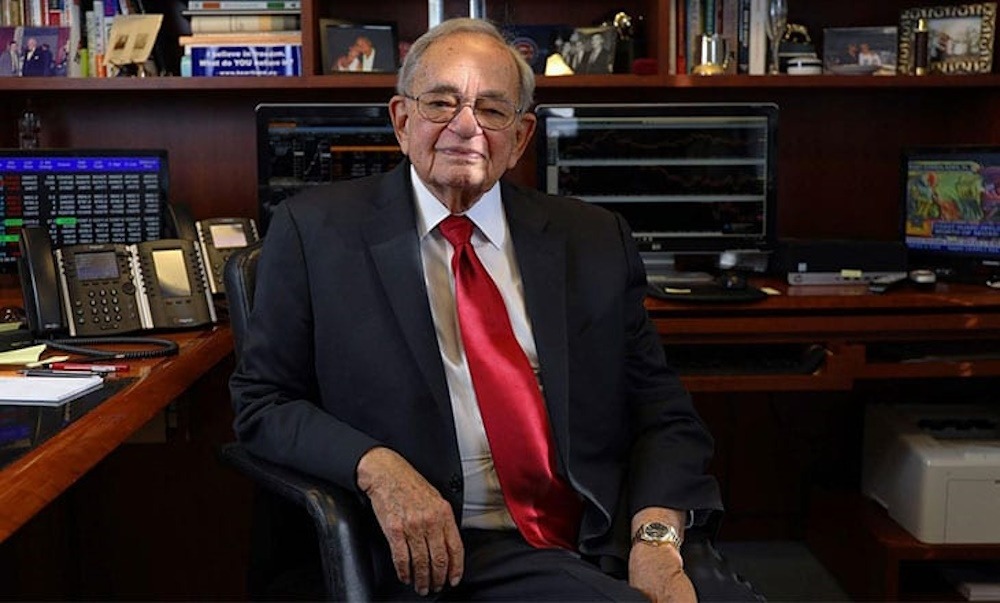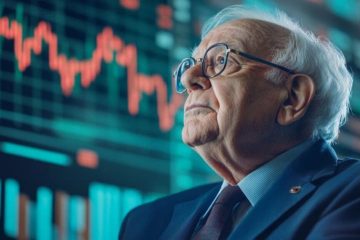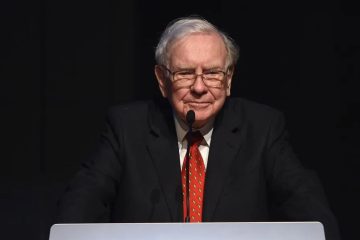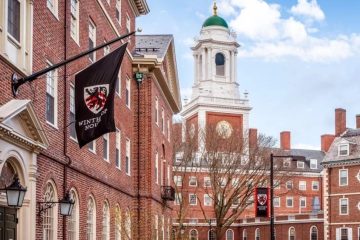The man who created futures markets

Chicago may not currently embody the ideals of free markets, but it has been a breeding ground for some of the brilliant minds shaping today’s financial system. The Chicago History Museum this month is honoring one of those creators, 92-year-old Leo Melamed, whose journey serves as a reminder of a time when financial innovation had a positive impact on the world.
Mr. Melamed’s birthplace was Poland, and his Jewish family escaped the Nazis by boarding the final train to Lithuania. They traveled across Siberia to reach Vladivostok and continued on to Japan. They were one of the few families who managed to obtain U.S. visas and finally arrived in 1941 following a two-year journey.
The family found a home in a Chicago neighborhood that Mr. Melamed recalls as being populated by Irish, Italian, and Jewish immigrants. Despite not knowing any English, he managed to navigate his way through public schools and John Marshall Law School. Seeking employment, he came across a classified advertisement for Merrill Lynch, Pierce, Fenner & Beane, which he mistakenly assumed to be a law firm. His error led him to the Chicago Mercantile Exchange, where he transformed the landscape of trading futures.
In the 1950s and ’60s, the Merc was a modest exchange that focused on trading agricultural products. Mr. Melamed had a keen insight into the potential use of futures in the realm of currencies and financial instruments. “Everyone dismissed my suggestion with laughter,” Mr. Melamed says. He mustered his courage and reached out to Milton Friedman, who was then at the University of Chicago.
Friedman agreed that it was a brilliant idea, and the rest is now part of the past. Mr. Melamed assumed the role of chairman at the Mercantile Exchange and established the International Monetary Market, which facilitated the trading of financial futures. Starting in May 1972, he entered the world of futures trading for various financial currencies, such as the British pound, the Deutschmark, Swiss Franc, and Japanese yen. In 2023, the futures market boasted an impressive 29.1 billion contracts, as reported by the Futures Industry Association.
Futures markets are not the reckless gambling establishments that are often portrayed in popular culture. They enable farmers and businesses to mitigate risk. They enable small investors to safeguard themselves from market volatility, while also assisting multinational companies in mitigating risks associated with currency fluctuation.
Mr. Melamed introduced electronic trading with the Globex system in 1987. The change posed a direct threat to the open-outcry system that had been the dominant method on the exchanges since their beginning. Consider the film “Trading Places.” Despite the anger of many traders, the change propelled financial markets forward and ensured the Merc’s continued significance in the global finance arena. “Competition is crucial,” Mr. Melamed states. It facilitates economic expansion.
Free markets are currently not in vogue politically, despite their proven ability to uplift billions from poverty. It’s commendable that the Chicago museum acknowledges the significant role played by a local individual in shaping American freedom and prosperity.








